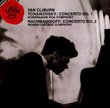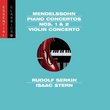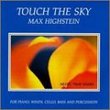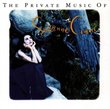| All Artists: Franz Joseph Haydn, David Willcocks, James Lancelot, Academy of St. Martin-in-the-Fields, English Chamber Orchestra, Andrew Davis, Heather Harper, Alexander Young, Robert Tear Title: Haydn: The Creation; Missa in tempore belli Members Wishing: 1 Total Copies: 0 Label: EMI Classics Original Release Date: 1/1/2007 Re-Release Date: 1/23/2007 Genre: Classical Styles: Opera & Classical Vocal, Historical Periods, Classical (c.1770-1830), Symphonies Number of Discs: 2 SwapaCD Credits: 2 UPC: 094637592922 |
Search - Franz Joseph Haydn, David Willcocks, James Lancelot :: Haydn: The Creation; Missa in tempore belli
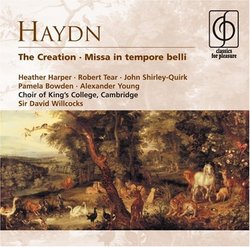 | Franz Joseph Haydn, David Willcocks, James Lancelot Haydn: The Creation; Missa in tempore belli Genre: Classical
Haydn s Creation is one of the great masterpieces of the classical period. Recommended in Laura Berquist Syllabus Grade 7Format: 2 discs, Audio CDPublisher: EMI ClassicsISBN: 0-9463759292 |
Larger Image |
CD DetailsSynopsis
Product Description Haydn s Creation is one of the great masterpieces of the classical period. Recommended in Laura Berquist Syllabus Grade 7Format: 2 discs, Audio CDPublisher: EMI ClassicsISBN: 0-9463759292 Similarly Requested CDs
|
CD ReviewsA voice teacher and early music fan George Peabody | Planet Earth | 09/02/2007 (5 out of 5 stars) "A MOVING AND INSPIRATIONAL INTERPRETATION OF 'THE CREATION'. More than any other composition that Franz Joseph Haydn (1732-1809) wrote, this work reflects his very early beginnings, a small peasant village in Austria, where people sang folksongs for the pure joy of it, and where dancing on the green was a daily occurence. With 'The Creation' we come to the culmination of Haydn's work. It was written to a text prepared by Baron Gottfried van Swieten, who reworked pre-existent material: a libretto orignally given to Handel that went unused. In 'The Creation' the choruses serve not only to reflect and praise the process of creation, but also to provide columns upon which the oratorio's architecture rests. Interestingly enough the oratorio begins not with the expected Italian or French overture, but with a profoundly original instrumental movement, "The Representation of Chaos". A study in controlled disorder, this musical painting utilizes elements of strict counterpoint and harmonic instability together with improvisatory gestures. These, combined with the minor mode, result in the perfect foil for the choral acclamation in the major, "And there was LIGHT!" AND THIS FACT brings me to one of the reasons I LOVE this performance. It is incredibly expressive, dramatically wonderful, perfectly sung, both soloists and chorus alike, and accompanied with the greatest skill by the Academy of St. Martin -in-the -Fields. Everything about it speaks to the excellence of Sir David Willcocks, who directed the King's College Choir from 1957-1973. And lest you be concerned because this is an English rendition, Haydn wrote the words so be sung in both German and English. I have it in German, but it's more relaxing to me to listen to it in English; just a personal response. Papa Haydn accomplished permanent things during his lifetime. He clearly defined, as it was to be used from then on, the sonata form previously employed by C.P.E. Bach. He 'house-cleaned'the orchestra, pruning unnecessary instruments and elements. He made his string quartets the models for all. AND HE LAUGHED INTO HIS MUSIC HIS OWN BUBBLING JOY OF LIVING AND HIS LOVE FOR HIS FELLOW-MAN! This recording of 'The Creation' was done in 1973; the other two selections by Haydn were recorded in 1966. Both choruses are very fine as is usual with every King's College Choir." Better late than never - thank you, EMI! B. Morris | Richmond, Virginia USA | 07/24/2007 (5 out of 5 stars) "I have never much liked "The Creation" until now, but this recording in English caught my ear and held my attention throughout. The solo and choral singing is exemplary, and the tempos all seem right. My only slight reservation is the very resonant sound, which slightly blurs a few of the big moments. The real reason for rejoicing here is the "Mass in Time of War". I own numerous recordings of this piece, and for me they all come up short next to this one. Perhaps there is a bit too much jollity for such a serious work, but there is also more bite to the music-making than on any competitor. Heather Harper is nearly perfect in the soprano part, tossing off her coloratura with bravura; John Shirley-Quirk is also quite eloquent. A rousing performance of a church motet rounds out this excellent and long-awaited release. " Slightly dissapointed E. Mcvey | 03/07/2009 (3 out of 5 stars) "I hadn't realized that this was done by a men and boys choir, and having boys do the soprano part definately makes the choral parts less stirring. Boys aren't able to put as much power into their singing as women sopranos, so the result is that certain parts where the choir is meant to be forceful fall short, which pretty much ruins The Creation."
|

 Track Listings (29) - Disc #1
Track Listings (29) - Disc #1